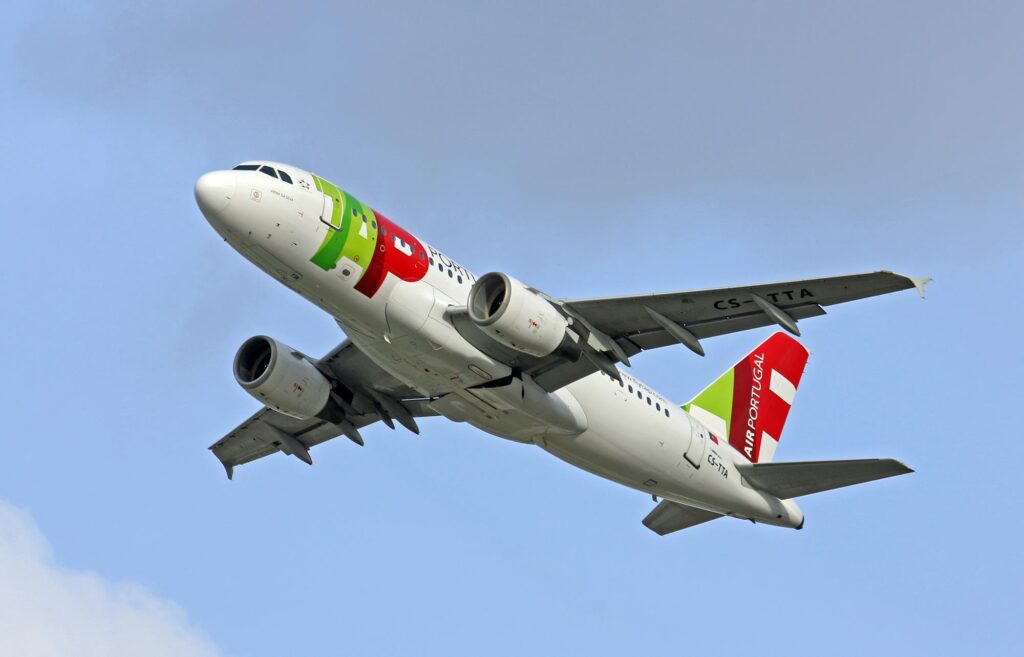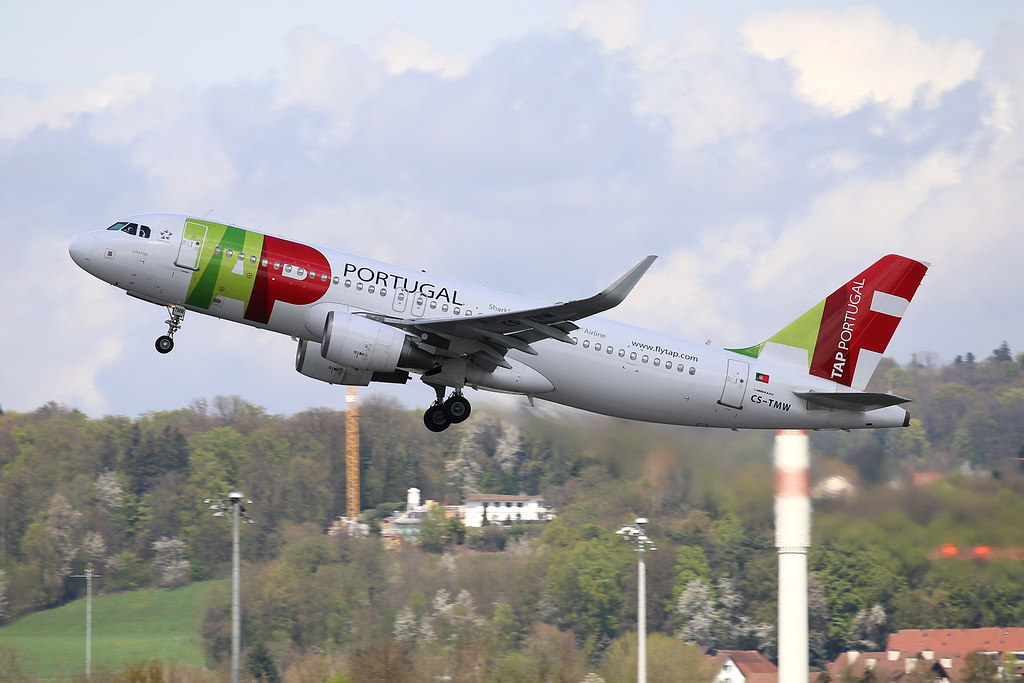A first for the Portuguese airline, TAP Air Portugal recently performs a flight using sustainable aviation fuel (SAF). The service was operated with an Airbus A321neo and flew passengers from Lisbon to Ponta Delgada. The completion of this flight marks the start of a strategic alliance between the airline and ANA Aeroportos de Portugal for growing and producing sustainable aviation fuel.
Airbus A321neo flying from Lisbon
While no sources specifically said flight numbers or aircraft registrations, it was reported that the flight was operated by an Airbus A321neo flying from Lisbon (LIS) to Ponta Delgada (PDL). The website Connaissance des Energies notes that the flight took off at 19:00 local time, which permits us to track down flight details.

Searching for a flight that took off to Ponta Delgada at 19:00 local time, we can see that the service was TP1863, used by the A321neo registered CS-JTR. This service is regularly scheduled to depart at 17:05 but consistently departs Lisbon almost an hour late. Flying for an hour and 50 minutes, the jet touched down at 19:50 local time.
TAP Air Portugal from Airbus facilities in Hamburg
CS-JTR is an almost two-year-old A321neo delivered to TAP Air Portugal from Airbus facilities in Hamburg in October 2020. The aircraft is configured with 221 seats in a single class layout (with euro business). One special thing about CS-JTR is its special retro livery, which is only present on a handful of TAP aircraft.
Also, read
- Star Air To Expand its fleet with 2 New Embraer E175 | Exclusive
- Rolls-Royce secures engine service deal with VietJet
- SpiceJet passengers complain about lost baggage and seek response from the airline
According to Aviacionline, this first TAP SAF-powered flight utilized 39% renewable source fuel. The use of HEFA, or hydro processed esters and fatty acids was mentioned. According to the US Energy Information Administration, HEFA fuels are nearly indistinguishable from their petroleum counterparts. Referred to as “drop-in fuels,” this source of energy is nearly identical to comparable petroleum-based fuels.
In a statement, the airline notes that the use of this sustainable aviation fuel “represents a 35% decrease in entire CO2 emissions.” The fuel itself is made from waste, recycled used oils, and other sustainable raw materials. The emissions reduced on this particular flight were calculated to be 7.1 tons of carbon dioxide equivalent.
A partnership was formed between the airline, Portugal’s airport operator ANA Aeroportos de Portugal, and GALP – a Lisbon-based multinational energy corporation. The CEOs of the 3 firms officially made their commitment to cooperate at a signing ceremony.
Aviacionline notes that nine of ANA’s ten airports achieved “Level four airport carbon accreditation” from the Airports Council International this year. This accreditation is the highest level available and ensures the high status of these airports in their goal of carbon neutrality.

The widespread adoption of SAF is critical to its success. Connaissance des Energies notes that biofuels are currently two to four times more expensive than kerosene. Thus, expanding production and improving economies of scale will need to take place to lower the cost and make it a more feasible option for airlines. The EU is working on gradual obligations to incorporate SAF into kerosene.
Thank you
Stay updated with Aviationa2z.com
Join our Telegram group for the latest updates
